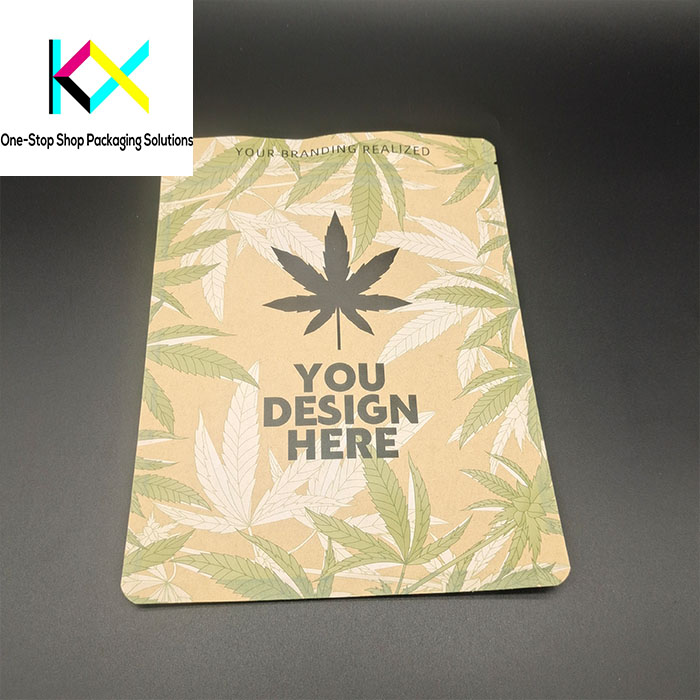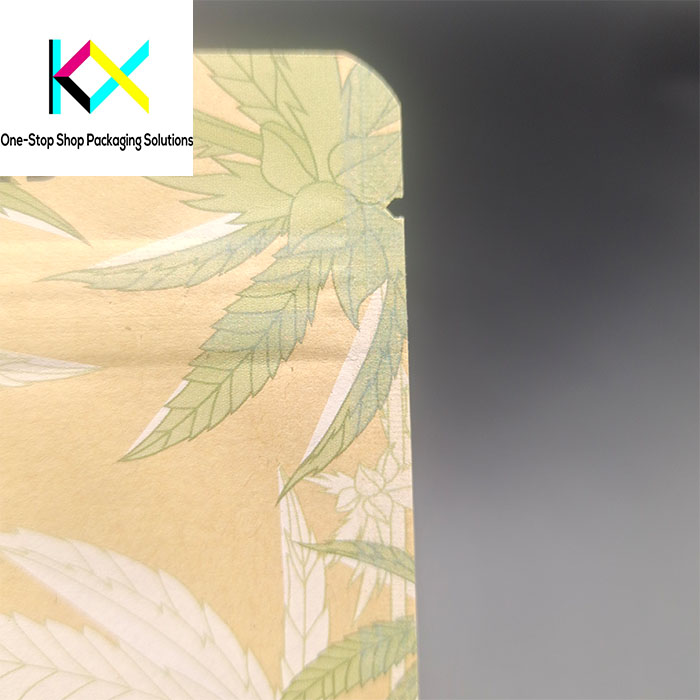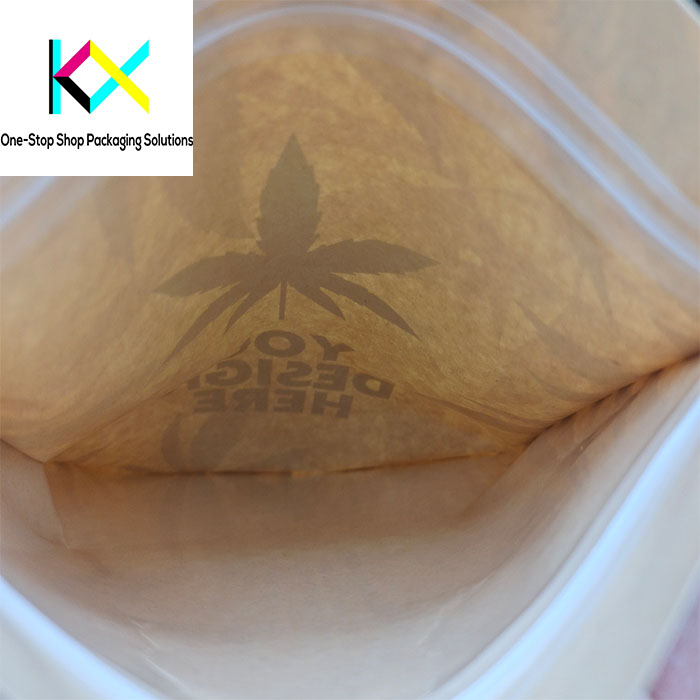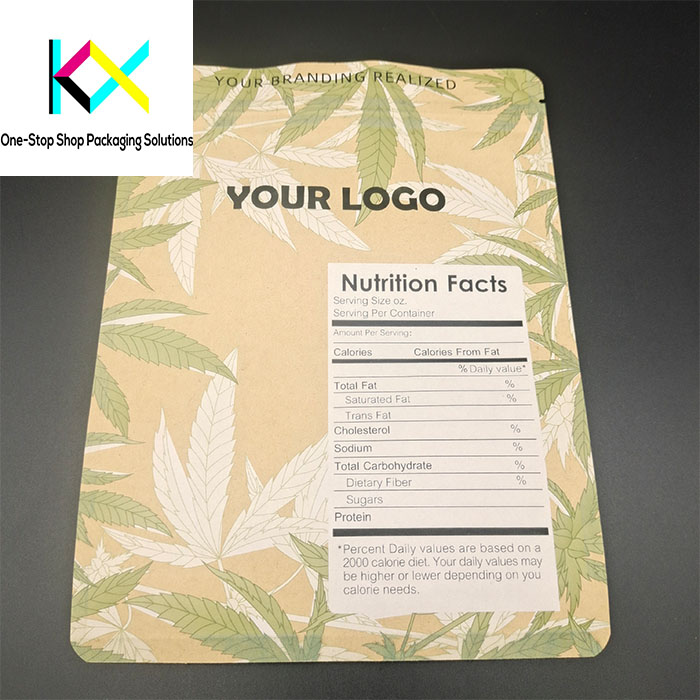The Fresh Frontier: How Biodegradable Paper Pouch Innovations Are Reshaking Food Packaging
In the urgent race against plastic pollution, biodegradable paper pouch solutions have emerged as the vanguard of sustainable packaging – combining advanced material science with circular design principles. These revolutionary containers now deliver performance once exclusive to plastics while offering genuine end-of-life solutions. Parallel innovations in bread packaging paper bags signal a sector-wide transformation, with the global edible packaging market projected to reach $2.7 billion by 2028 (Grand View Research), driven by regulatory pressure and consumer demand for plastic-free solutions.

1. Material Breakthroughs: Beyond Basic Biodegradability
Engineering Performance into Plant-Based Structures
Modern biodegradable paper pouch solutions leverage nano-engineered materials that defy conventional limitations:
Cellulose-Nanofiber Composites: Plant-derived barriers achieving 0.02g/m²/day WVTR – matching polypropylene
Mycelium-Reinforced Walls: Mushroom-root networks boosting tear resistance 400%
Marine-Degradable Adhesives: Seaweed-based bonds dissolving in saltwater within 60 days
Active Bio-Coatings: Probiotic layers inhibiting mold growth naturally
Artisan bakery Tartine uses bread packaging paper bags with enzyme-activated freshness membranes, extending shelf life 30% without preservatives. Third-party verification confirms complete backyard decomposition in 45 days – outperforming PLA alternatives.

2. The Preservation Paradox: Freshness Without Plastics
Reimagining Food Protection Through Biomimicry
Today’s bread packaging paper bags incorporate multi-functional barriers:
Moisture Control
Humidity-responsive pores regulating internal RH between 75-85%
Silica-infused liners absorbing condensation
Hydrophobic lotus-effect surfaces repelling external moisture
Gas Management
Zeolite-embedded panels absorbing ethylene
Oxygen-scavenging lactobacillus cultures
CO₂-release valves for fermented doughs
Light Protection
Titanium-dioxide-free UV blockers
Light-diffusing textured surfaces
Photo-sensitive indicators signaling UV exposure
Panera Bread’s switch to biodegradable paper pouch solutions reduced plastic usage by 18 tons monthly while maintaining identical freshness duration for baked goods.

3. Circular By Design: From Waste to Nutrient
Closed-Loop Systems Redefining Value Chains
The sustainability advantage of bread packaging paper bags extends beyond disposal:
Regenerative Production
Agricultural waste feedstocks (wheat straw, bagasse)
Solar-powered pulping with water recycling
Carbon-negative manufacturing processes
End-of-Life Innovation
Home-compostable certification (OK Compost HOME)
Worm-farming compatibility for urban soil regeneration
Anaerobic digestion converting waste to biogas
Circular Business Models
L’Oreal’s “Packaging Farms”: Used pouches grow mushroom crops
Nestlé’s cellulose recovery program: Repurposing bags as packaging filler
Terracycle’s bread bag-to-planter initiative

4. Sector Transformation: Beyond Bakery Applications
Pioneering Unexpected Market Disruption
Biodegradable paper pouch solutions now penetrate diverse industries:
Grocery Revolution
Oil-resistant liners for artisanal cheeses
Reinforced wet-strength variants for fresh pasta
Aroma-locking designs for specialty coffee
Food Service Innovation
Steam-permeable pouches for sous-vide vegetables
Grease-proof sandwich wraps with compostable adhesives
Freezer-to-oven bags surviving -30°C to 220°C
Non-Food Applications
Child-resistant pharmaceutical pouches
Water-soluble detergent sachets
Seed-embedded planting pouches
Bimbo Bakeries reported 23% sales increase after launching bread packaging paper bags with embedded wildflower seeds – turning disposal into ecological restoration.

5. The Intelligent Future: Smart & Regenerative Packaging
Where Containers Become Active Systems
Next-generation biodegradable paper pouch integrations include:
Freshness Intelligence
-
pH-reactive inks changing color at mold thresholds
-
Ethylene-detection sensors triggering ventilation
-
Time-temperature history indicators
Supply Chain Transparency
-
Printed NFC chips storing blockchain journey data
-
Biodegradable GPS trackers powered by cellulose batteries
-
Strain gauges monitoring compression damage
Manufacturing Revolution
-
AI-optimized fiber alignment reducing material 35%
-
Digital watermarking for automated composting streams
-
Robotic micro-factories enabling hyper-local production
The Packaging Paradigm Shift
Biodegradable paper pouch solutions have shattered the eco-performance compromise with:
-
Barrier properties rivaling multi-layer plastics
-
Decomposition timelines beating industrial standards
-
Active preservation systems replacing synthetic additives
Major brands are taking note:
-
Grupo Bimbo’s global shift to compostable bread packaging paper bags
-
Unilever’s €1 billion investment in paper-based packaging
-
EU’s Single-Use Plastics Directive accelerating adoption
As regulatory deadlines loom and consumer expectations evolve, these innovations transition from ethical choice to business imperative. The future belongs to packaging that doesn’t just contain products but contributes to ecological restoration – proving sustainability and performance can coexist in perfect harmony.
You can visit our website to know more about our flexible packaging pouch:
